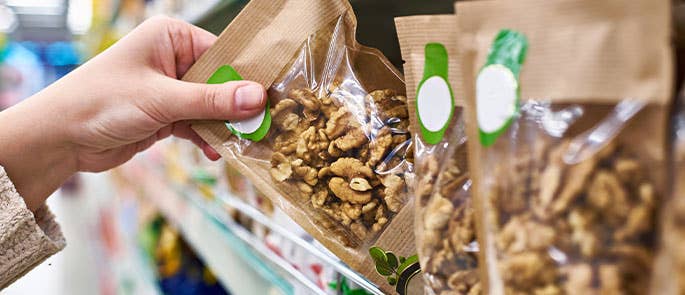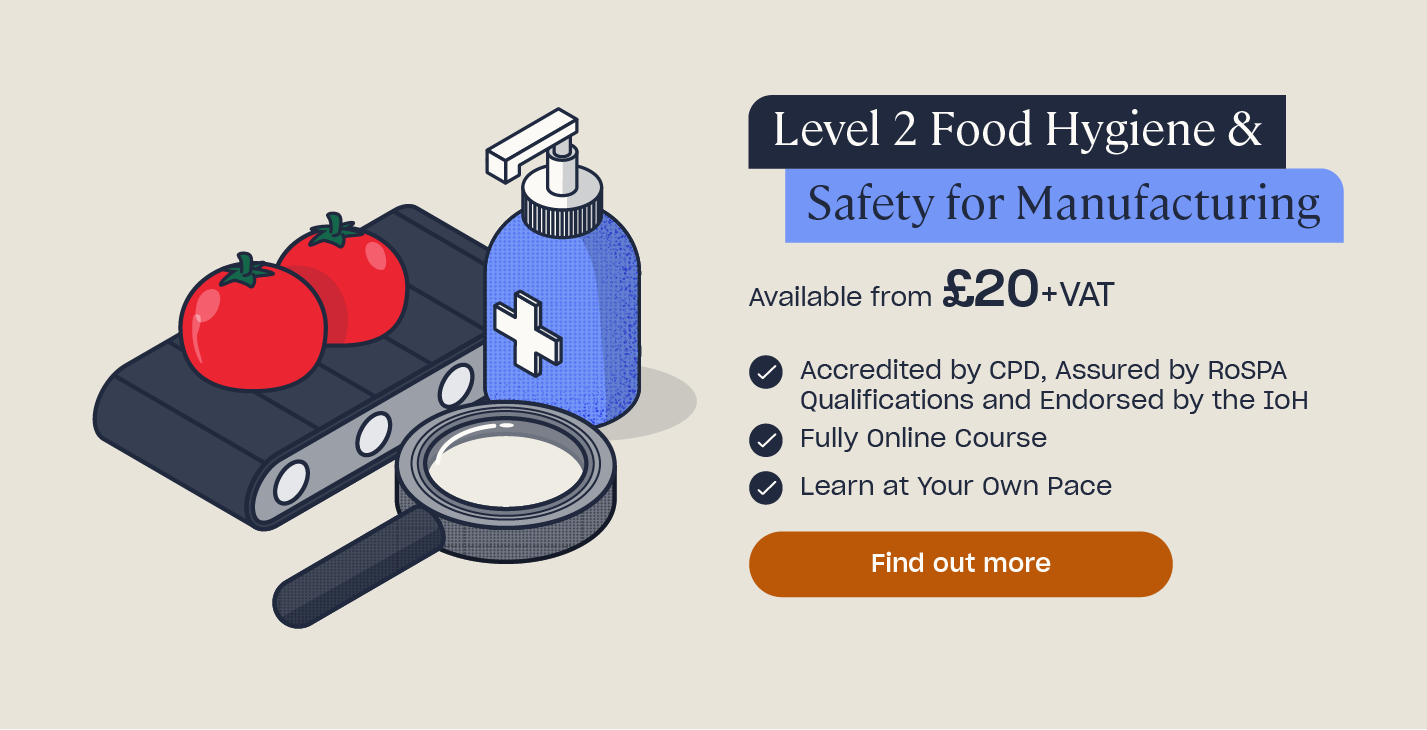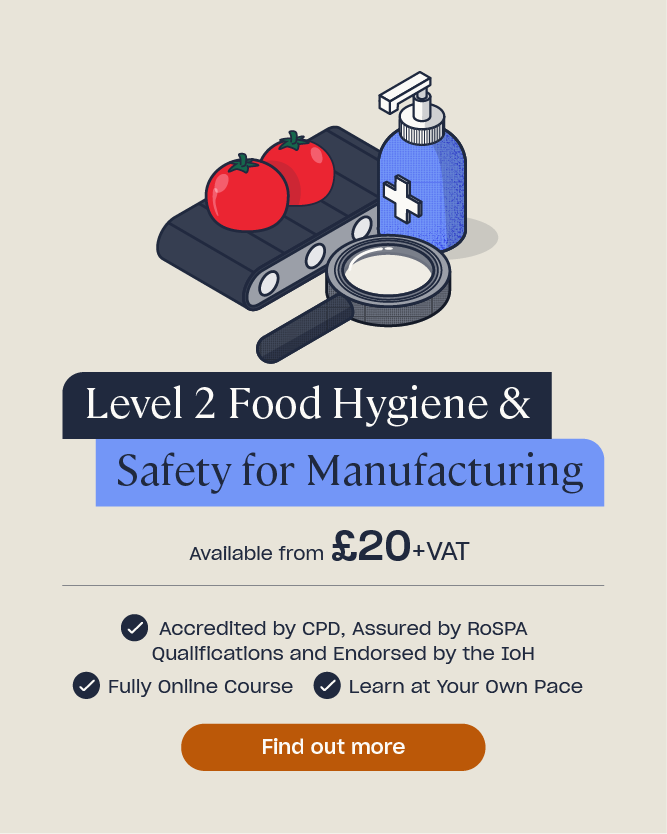What is Healthwashing in the Food Manufacturing Industry?
Healthwashing is an issue that affects the whole food and drink manufacturing industry, as it’s something that both food producers and food consumers need to be aware of – and avoid. In this article, we’ll look at what healthwashing is, how it can affect consumers, how to identify healthwashing claims and why it’s an important modern-day issue to have knowledge of.
What is Healthwashing?
Healthwashing is when a food manufacturer uses certain terms to describe its food products in order to make them sound healthier and more nutritional than they actually are.

Healthwashing terms are often those without legal definitions that food manufacturers can use at their own discretion and are usually based on health, nutrition or medicinal claims about the food. For example, stating that a food product is ‘100% natural’, ‘reduced fat’ or ‘high in fibre’. More examples of healthwashing labels are listed later in this article.
On the surface, healthwashing seems to be positive, as it helps consumers identify products that are better for them. However, on closer inspection, healthwashing is often a harmful practice. This is because these terms aren’t always an accurate representation of the food product and can lead consumers to believe the product is something it isn’t.
Manufacturers can also use healthwashing labels to ‘hide’ the unhealthy aspects of the food product in order to sell more. For example, many breakfast cereals are labelled as being ‘100% wholegrain’, ‘low calorie’ or ‘a great source of vitamins’ when, in actual fact, they are high in sugar, salt and artificial ingredients that do more harm than good.
A similar practice to healthwashing is greenwashing, whereby manufacturers use claims to suggest their products are better for the environment than they actually are. Sometimes, a food product may carry labels that are examples of both healthwashing and greenwashing at the same time.
Types of Healthwashing
Healthwashing terms usually fall into one of three categories based on the type of healthwashing claim: health, nutritional or medicinal.
- Health claims – health claims suggest that a food product will lead to a healthier lifestyle if consumed. For example, you might see a label that reads ‘made with all natural ingredients’, ‘high in protein’ or ‘contributes towards a healthy diet’.
- Nutritional claims – nutritional claims suggest that a food product is a healthy choice for the consumer, as it contains higher or lower than normal levels of vitamins, minerals or specific ingredients. For example, a label saying ‘low in sugar’, ‘high in vitamin D’ or ‘free from preservatives’.
- Medicinal claims – medicinal claims suggest that a food product will improve a person’s physical health if they consume it. For example, you might see a label saying ‘helps improve heart health’, ‘keeps bones strong’ or ‘reduces cholesterol’.
Examples of Healthwashing
Take a look at any food product in the supermarket and you’ll see a variety of healthwashing claims. All types of foods may carry healthwashing labels but some products are more common than others.
A common example of healthwashing is seen on soft drinks. These products are sometimes labelled as ‘zero calorie’ ‘calorie free; or ‘zero sugar’ when, in reality, only pure water can be free from calories and sweeteners are often used instead of sugar. All soft drinks contain ingredients that are bad for health, despite what the label says, and especially if they use chemical substitutes for sugar or artificial flavours.
Another common example of healthwashing is breakfast cereals. These products are often covered in healthwashing claims, such as ‘high fibre’, ‘source of vitamins’, ‘low in sugar’, ‘natural’ and ‘gluten free’. Whilst these labels might be true, the reality is that these claims are not based on the main ingredients of the cereal. Take a look at the back of the box and you’ll find plenty of sugar, additives, sweeteners and preservatives that make the product much worse for your health than the labels suggest.

How to Identify Healthwashing Products
Many healthwashing terms don’t have legal definitions, so food and drink manufacturers can use them on any product without having to back up the claims. This is particularly true of labels like ‘natural’ and ‘healthy choice’, which don’t really have a definition at all.
Note that in the UK, food labelling regulations mean that terms such as ‘low fat’, ‘low sugar’ and ‘low salt’ have legal definitions that the product must comply with in order to display the claim.
To identify healthwashing products, take a look for the following terms on the item’s packaging. Whilst this list is long, these are just a few examples of healthwashing claims and there are many more than are listed here:
- 100% natural
- 100% wholegrain
- Baked not fried
- Cholesterol free
- Dairy free
- Fat free
- Fewer calories
- Fortified with vitamins
- Free from artificial colours
- Free from artificial flavours
- Free from preservations
- Gluten free
- Healthy choice
- High in protein
- Keeps the heart healthy
- Keeps bones strong
- Low calorie
- Low in cholesterol
- Low in salt
- Low sodium
- Low sugar
- Low fat
- Made with all natural ingredients
- Made with real fruit
- Made with real ingredients
- Natural
- No added sugar
- No added nasties
- Organic
- Plant-based
- Provides your recommended daily amount
- Reduced fat
- Reduces cholesterol
- Source of fibre
- Source of probiotics
- Source of essential vitamins
- Sugar free
- Supports a healthy diet/lifestyle
- Vegan/vegetarian
- Zero calories
Find out more about vegan food labelling with our article: Vegan Food Products: What are the Labelling Requirements?
Tips for Businesses on How to Avoid Healthwashing
All food manufacturers have a responsibility to not mislead their customers and must act responsibly when it comes to health and nutritional claims. Whilst there aren’t many rules about the labels that can and can’t be used, manufacturers still have a moral responsibility and should act with the best interests of consumers in mind.
As a manufacturer, ensure you are following all UK/EU food labelling regulations and are using the right labels in the right places, otherwise you’re at risk of breaking the law and may find your company subject to expensive legal action. Correct food labelling is especially important when it comes to food allergens, and food products must never make ‘allergen free’ or ‘may contain’ claims without being able to back this up.
Furthermore, if you are a food or drink manufacturer wanting to label a food product as providing a benefit to the consumer’s health, then EU regulations state that your claim must be supported by scientific evidence. For example, you cannot state that a product ‘supports normal metabolism’ without having the product tested and assessed scientifically.
As a consumer, you can make considered choices and avoid healthwashing by:
- Buying fresh vegetables, fruits, nuts and grains (whole foods).
- Avoiding ultra-processed foods, which often contain many unhealthy ingredients.
- Paying attention to the ingredients lists on food products – the shorter the list, the healthier the product.
- Not instantly believing a health claim to be true. Always check the nutritional information and ingredients list of a food product to make a fully informed decision.
Healthwashing is common practice of many food manufacturers but is something consumers must be wary of. The health claims and nutritional claims made on food packaging are usually only part of the story and it’s important to consider the product as a whole, considering the overall nutritional content and ingredients list, in order to make a truly informed choice about what you’re eating.
Further Resources:
- Level 2 Food Hygiene and Safety for Manufacturing
- Why is Food Labelling Important?
- What Are Ultra-Processed Foods and How Do We Recognise Them?
- Guidance on Food Additives Legislation for the UK and EU
- Clean Label Packaging & Food Trends










